DevOps Master Program
(AWS + DevOps)
Program Overview
The DevOps master program course aims to simplify and streamline the processes associated with software development. In other words, it is a group of practices that allows enriching the collaboration and communication between the software development and IT operations teams. The main aim behind this DevOps training course is to automate the processes involved in the software development lifecycle using different high-end tools.
Key Features of DevOps Master Program
- Ideal for freshers as well as intermediates
- Guidance and quality support to build your resume
- Live training by experts for 3.5 months
- In-depth job interview preparation
- 5 live projects to enrich practical knowledge
- A comprehensive explanation of projects
Program Curriculum
Pre-Requisites: This is a 1-week training session that mainly provides insight into the basics of DevOps. The classes are divided into 2 hours for each day. The DevOps Master program consists of 4 modules;
Day 1:
- Instructions on creation an AWS account
- Create Linux Machine on AWS
- Login to AWS Machine from local machine
- Importance of linux commands?
- Linux File Systems
- Basic commands that refers files and folder
- How we can learn the linux commands
Day 2:
- Add the users and groups in Linux Machine
- Change Ownership of file/directory
- Change Group ownership of file/directory
- File Permission in linux
Day 3:
- Global AWS Infrastructure
- Home Network Concept
- Networking Concept – Private and Public IP
- NAT
- VPC
- Private IP Range
- Create VPC
- Create Subnets
- Create EC2 machine in custom VPC
- Create the Internet Gateway and attach it to VPC
Day 4:
- Add public internet route entry inside main route route table
- Making private subnet and public subnet (with RT)
- Launch EC2 in private subnet
- Login to private EC2 through bastion host/jump server
- Create the NAT GW for private instance to access internet
- SSH Private and public Key
- Security Group
- Elastic IP
Day 5:
- Microservices Overview
- Difference between Monolithic and Microservices app
- Overview Build Tools npm, maven, pip
- Build the application using build tools
Day 6:
- What is docker?
- Docker Overview
- Installation of docker on ubuntu
- Run the wordpress container
- Port forwarding in docker
- Docker commands
- Docker Build
- Docker push to docker hub repo
This module focuses on the basics of Docker Advance and Ansible who is the market leader when it comes to configuration management.
This module focuses on automation using Terraform to create and manage the AWS cloud infrastructure remotely in the form of a code.
Here you will learn about Kubernetes and its management services ie; EKS (Elastic Kubernetes Services) and GKE (Google Kubernetes Engine).
This module is the heart of the DevOps program. It talks about CI/CD with Jenkins via automation as well as integration using Jenkins.
AWS cloud is very important in the current market to learn along with DevOps. Which we have added to the curriculum with advanced topics.
We cover Python DevOps & Shell Scripting as self-paced learning videos.
This Course Includes
- Eligibility: Fresher to less than 4 Years Experience
- 3 Months of Live Training
- 5 LIVE Projects
- Interview Preparation
- Resume Building
- Project Explanation
- LIVE Session will get recorded & Shared
- Support via Email & Slack
Corporate Training
Corporate Training has become an essential part that constitutes the work culture. While most training is conducted for soft skills, a DevOps Master Program will provide an all rounded development. This DevOps course is highly beneficial for freshers taking their first step in the corporate world. With streamlined and accessible training modules, this DevOps training will zoom through maximum topics essential to get going with DevOps.
Skills You'll Acquire:
Linux
CI/CD Pipelines
Infrastructure Code
Configuration management
Cloud computing
Container orchestration
Tools You'll Learn:













Why Choose Mindbox
Career Services
Interview preparation
We prepare you thoroughly for a successful interview
Portfolio building
We help you build a strong portfolio with LIVE project work during the DevOps certification program
Mock test
We provide mock test to prepare you for real world DevOps challenges and projects
Project explanation
Our team of experts explains you each aspect as the DevOps course progresses.
Our Expert Trainers
- Our team of trainers carries more than 10 years of expertise and experience in the Agile industry.
- Also, they have become masters in Cloud Foundation. Each of our experts possesses certificates in DevOps, CI/CD pipelines, Jenkins, Ansible, Docker, and Kubernetes.
- We have a team of well-qualified DevOps professionals who can effectively impart their knowledge.
- So, whether you lack technical knowledge or know the basics, you can be sure of learning the best of cloud engineering from our panel of DevOps experts.
- Although the DevOps training program encompasses all the components to help anyone become one of the best DevOps cloud engineers, the likelihood is lower without the right personnel.
Our Project Work

Overview
Home Ecommerce app is a cutting-edge project built on a foundation of micro services in DevOps certification. This application platform helps students to understand how to deploy applications. The deployment is done on the Kubernetes platform. All the images have to be built using the docker tool.
Tools
Docker, Kubernetes, Kubectl, AWS CLI, Docker Hub Registry are used in DevOps course
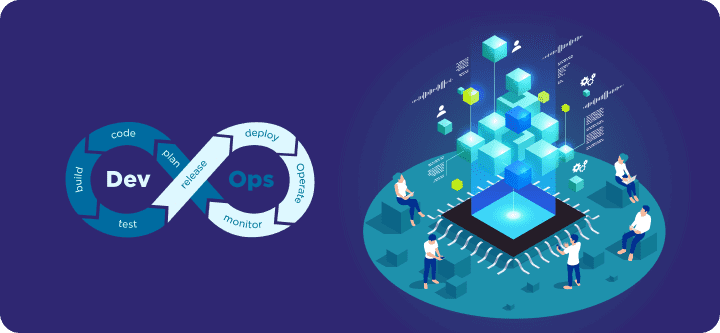
Overview
Spring Petclinic Project is a micro-service-based application that we will use to learn how to build the application, how to deploy it using the best practices around CI/CD, and how to automate configuration using Ansible
Tools
Jenkins, Git Github, Nexus, Ansible, AWS EC2, Docker
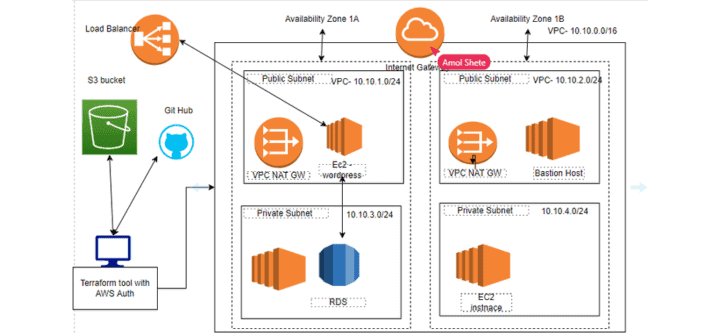
Overview
We will create the available best practices infrastructure using the Terraform tool. This project will give an idea of how the cloud infrastructure needs to be created in the real world, and how to maintain it for big enterprise organisations.
Tools
Terraform, AWS CLI, AWS services such as EC2, Auto Scaling Group, Load Balancer, VPC, Subnets, Bash scripting, Network related services
Who May Apply to this program?
- Anyone who has Blow 4 Years of IT experience Irrespective of the technology.
- Freshers who dont have any IT experience also can apply for the course.
- Any Non-Coding background can also apply for this course
Industry Trends
Annual Salary
An average of 7 LPA
Companies Hiring
TCS, IBM, Accenture, Cognizant, HCL, Oracle, Capgimini
Demand
The current demand is expected to triple and quadruple in the coming decade
Market Growth
The sector is expected to register a CAGR of 24.2% from 2021 to 2030.
Market value
The global DevOps market size was valued at $6.78 billion in 2020, and is projected to reach $57.90 billion by 2030
Job Growth
Jobs are expected to grow 15 percent between 2021 and 2031
Reviews
I took AWS DevOps training at Mindbox. The trainer was so great in training us. He has 10+ years of experience so he explained a lot of real-time scenarios. We used to have projects every week. We got a chance to do a project together and present and explain the project. It helped everyone in the class. Overall totally worth training. For AWS and DevOps, this is the best Institute with a decent cost as well. Good luck everyone!!
Padmapriya Vijayakumar
Students
The great course format, As the name suggests is really Advanced DevOps training. The syllabus is properly designed considering cloud service providers like AWS, and Google. A trainer is a knowledgeable person about AWS, Google clouds & its association with DevOps. Also, we have received AWS Solution Architect self-paced training which is very helpful to get the proper understanding of Cloud features. You can go for this training without any second thought. Mindbox is providing recordings of the Live sessions which is very helpful for future reference.
Prasanth Dalvi
Students
The training was really nice. Things were explained thoroughly and even a person without knowing the complete basics could catch up easily with the way the things were explained. I will give a rating of five stars and can assure you that this is one of the best training I ever had. Thank you Mindbox for the continued support.
Aparna Panicker
Students
It’s a great platform to learn and implement your knowledge in your day-to-day life tasks. It’s simply awesome and full of knowledge.
Suryakant Samal
Students
Great place to learn Kubernetes, and the trainer is very knowledgeable. This course really helped me to change my profile to DevOps. I would recommend this institute to everyone who is interested to move their career to DevOps and SRE roles.
Vinay Krishna
Students
Mindbox training institute is simply great … Just completed a DevOps course, teaching was excellent.
Santosh Patra
Students
Inquired about many training inst for DevOps training. Finally, chosen mindbox The trainer is the best in the explanation part of every tool. The live projects have helped me to understand the real-time environment. He covered AWS & DevOps with all prerequisites. I thank the management of mind box for creating this kind of program with top-notch trainers.
Raj Kalam
Students
I came to know about Mind box from YouTube videos, Initially, I was really skeptical about online training. Now I feel I made the right choice choosing Mind box. The instructor is very detail oriented and the support for questions is really quick. This is the best online training I got so far. I got everything that I was looking for and was very happy about it.
Krishnaveni Valluru
Students
Got the knowledge on most of the concepts which are industry is seeking from the DevOps professionals.
Ravi Dasoju
Students
Great Instructor, Topics are covered in detail and in a very professional manner. The way the training is done is top-notch. The queries are answered very clearly. One of the best online training institutes. I would strongly recommend Mindbox training institute. Great support from the staff and the trainer.
Naveen D
Students
The training is completely practical oriented and it feels like we are working in a real-time environment. The way of teaching is excellent. The guidance is really great.
Dinesh
Students
Training has been great, he has got lots of experience and explains the topic in a great way, projects that mindbox provides are good. Support from Mindbox has been outstanding he will respond in moments over WhatsApp or over call which is really great as most of the institutes won’t respond once payment is made but Mindbox is really different from them.
Gowtham Sai Charan
Students
FAQ'S
Anyone who is interested in DevOps as well as those who have no prior experience in the IT sector or even simply wants to switch industries can try the DevOps program.
The DevOps program has 4 modules, and each one is divided into 2 weeks of training and 1 week project.
You can access 24/7 support from DevOps experts via Stack and Email.
During the project week, we hold an interview session where you get to clarify queries concerning LIVE projects and gain expert guidance too.
The whole DevOps online course is 100% practical based where you gain guidance and support consistently from experts and get real-time industry experience.
The program allows IT professionals to learn world-class Industry practices, which helps tech companies deliver IT projects with a continuous passion. Lately, a new culture (often called DevOps) has evolved. It guides companies to attain a continuous flow of work, starting from the business requirement, which keeps coming from stakeholders of your product until the product hits the market. This course will deeply dig into those world-class IT practices, helping the eligible attendees to adopt DevOps practices at work.
Yes, this is a Job-oriented program. It also includes a few projects that contain ample amounts of real-time-based problems and scenarios to work on.
The course curriculum is prepared by a trainer who, with his 11 plus years of IT experience, guides different live projects across different companies. The course covers all areas of DevOps in-depth, such as CI/CD, Config Management, Containers and Orchestration, and Cloud Computing.
Yes, all topics are covered in-depth, and there are 4 main projects you will do along the way. Here, many use cases of learned topics would appear.
4 projects are covered in this course – 1) CI/CD of Java/Python software applications, 2) Config Management and release process using Ansible, 3) Containers Orchestration using Kubernetes 4) Building a Highly Available, Fault tolerant infrastructure stack in AWS for your software stack.
We provide the most comprehensive DevOps certification program with real-world practical projects. So, you get ready right from day one for your job in any company.
DevOps is considered to be the biggest turning point of the decade in IT. Also, it is now mandatory for all software companies to adopt DevOps practices to compete in the market. DevOps currently leads the market and is expected to be the leader in the future.
The best-recommended path for freshers would be to start their career in a Start-up as a “DevOps Engineer”. This course includes 2 weeks of prerequisite training, which helps beginners understand common IT practices before moving on to DevOps training.
DevOps is one of the highly-paid Jobs today. The salary varies from company to company, but a knowledgeable DevOps engineer with 4 years of experience gets an average salary of 10L to 15L per annum.
No, but what we cover in the course is necessary. You cannot practically learn all DevOps tools; even a 5-year experienced DevOps engineer cannot. The truth is what you should learn are the project practices that we cover in-depth.
Yes, our experts help to prepare resumes during the DevOps certification program.
Yes, we provide a few documents along with training and a separate class at the end of the training.
Yes, we cover all these aspects during the DevOps certification program.
There is a 2-week training for Linux, Networking, and software concepts, and 1.5-week training for Shell and Python scripting during the DevOps certification.
Wrong question! Today, every company uses DevOps.
Yes, it is! Today, DevOps is the turning point in the IT sector. Within a decade, the field will transform the sector substantially.
It may sound funny, but all companies must know DevOps today to achieve great collaboration across their product platforms. According to a guess, Core DevOps Jobs may be limited to 15%. As of today, DevOps is one of the most important positions which companies are trying hard to fill in. You get lots of interview calls if you have a good public profile such as on LinkedIn.
Of course, this DevOps certification program helps you to get into the field!
Subjectively, if you already have experience in the IT domain, your chances might be unlimited with proper learning and project work. If you’re a beginner, you will have more knowledge on “topics” than a 2-year experienced DevOps engineer in general, but “purely subjective”.
The Trainer has 11 years of experience, and he is now a founder of a startup that helps companies migrate their software applications to cloud-native and adapt best DevOps practices.
Similar Courses
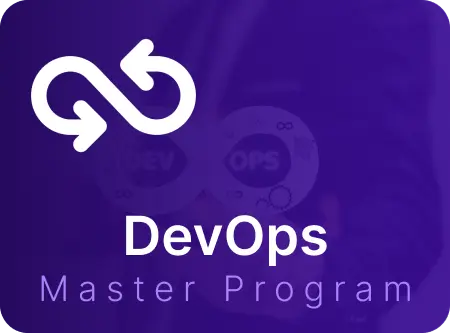
DevOps Master
Program
- 120+ Hrs
- Who needs to Enroll (Perfect Curriculum for Freshers & Less than 3 Years Experienced in IT)
- 3.5 Months Duration
- Basic to Advanced
- 5 LIVE Projects | 100% Career Centered Curriculum
- Self-paced learning Video Option Available
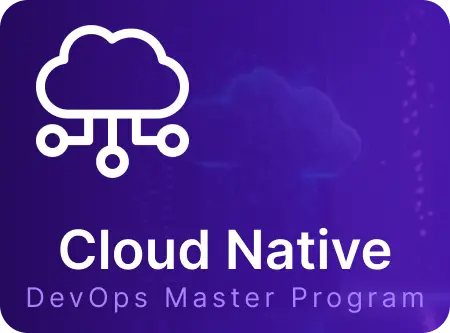
Advanced Cloud
Native DevOps Master Program
- 230+ Hrs
- Who needs to Enroll ( The best Curriculum for Above 4+ IT Experienced Professionals )
- 3.5 Months Duration
- Pre-Requisites to Highly Advanced futuristic
- 5 LIVE Projects | 100% Career Centered Curriculum
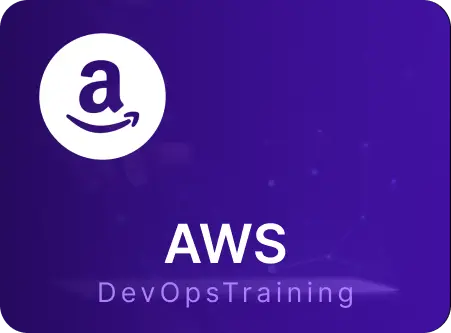
AWS DevOps
Training
- 120+ Hrs
- Covers the complete package of tools needed to be a DevOps engineer for freshers and experienced IT professionals.
- 3 Months Program from Pre-Requisite to Advanced level
- 5 LIVE Projects | 100% Career Centered Curriculum
- Self-paced learning Video Option Available
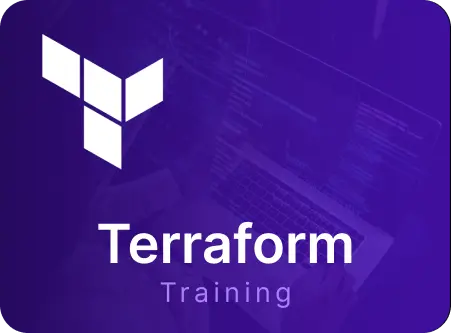
Terraform
Training
- 30+ Hrs
- Anyone who looking to enhance their knowledge of infrastructure tools particularly on terraform
- 2 Week Training + 1 Week project
- Cover all topics including some AWS advanced concepts
- Self-paced learning Video Option Available
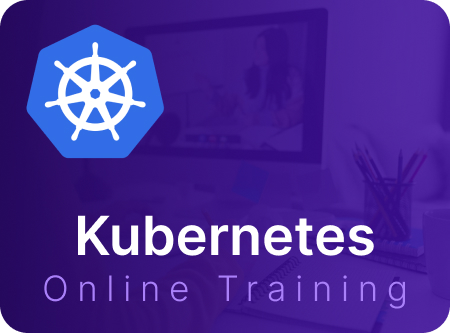
Kubernetes Online
Training
- 30+ Hrs
- Covers the advanced topics on Deployment, Cluster, Containerisation, etc.
- 2 Weeks Training + 1 Week Live Project
- A pre-requisite module will be delivered to learn Kubernetes and Docker
- Self-paced learning Video Option Available
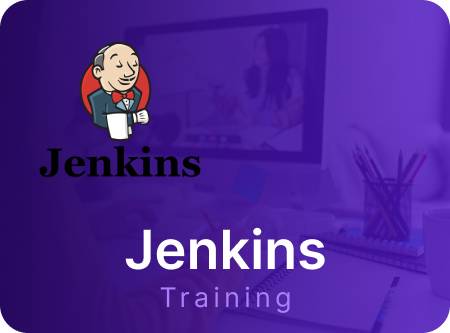
Jenkins
Training
- 30+ Hrs
- Covers complete CICD pipeline concepts including GIT & GIT hub
- 2 Weeks Training + 1 Week Project
- Include a Pre-Requisite module for a better understanding of Linux Basics and Cloud concepts to learn Jenkins
- Self-paced learning Video Option Available
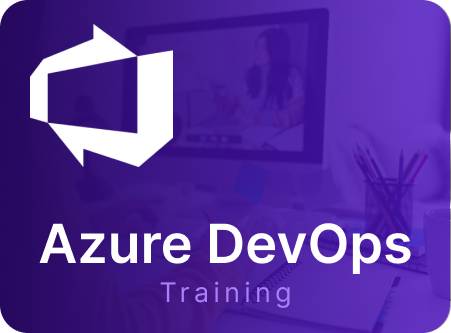
Azure DevOps
Training
- 30+ Hrs
- Anyone who looking to enhance their skill on CICD of Azure DevOps
- 2 Weeks Training + 1 Week Advanced Project
- Pre-requisite module will be provided to understand the basics of Kubernetes and Containerisation
- Self-paced learning Video Option Available
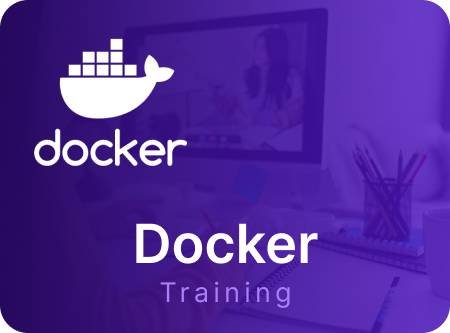
Docker Plus Ansible Training
- 30+ Hrs
- Covers complete Advanced topics on Docker including configuration management tool Ansible
- 2 Weeks training + 2 Projects
- Include Prerequisites of Linux & Cloud topics for better understanding
- Self-paced learning Video Option Available